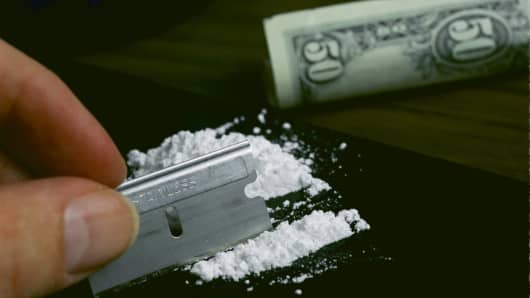It's not like you rip one line and then all of a sudden your life falls apart. For me, I started to have what I thought was more fun at night, which resulted in less success during the day. I was still making money, but not making great decisions all of the time. My formula for success started slipping away from me. It took about two whole years before the wheels started to fall off. Then I started losing money and making very poor choices in and out of the office.
During my years of struggling with addiction, my trading suffered. One of my first seven-figure losses came because I'd lost focus and attention to detail. I just didn't do the clerical part of my job over options expiration. And when I came into work on Monday, I learned that it cost our firm over a million dollars. And in 2009, I lost hundreds of thousands of dollars personally. I was stubborn. I was adamant that the market shouldn't be rallying as much as it was. I was short, stayed short and doubled down. And the entire time I knew I was breaking a cardinal rule of trading: Don't fight the Fed.
Read MoreThis hedge fund absolutely killed it in January
Since writing my memoir, I've had numerous parents of aspiring traders and recent graduates ask me if cocaine use is endemic on Wall Street. The answer is no—it's not part of the job description, but it is a fairly large rabbit hole that is easily to fall into. That first cocaine high is so good; it's hard to imagine never doing it again. And that's when the trouble begins.
I'm sure some will say I couldn't handle my coke and booze and they're right. But my ability to function at my job was still impaired even when I was able to wake up, shower, suit up and make it to work on time. Cocaine limited my ability to manage risk even when I wasn't on cocaine.
I don't think financial drug use is one of those chicken-or-the-egg-type things. The pressure of the job doesn't create the need for the drug. But the need for the high of the drug does help enable not feeling the feelings from the job. Wall Street attracts a certain type of personality, but that does not mean they're drug addicts or alcoholics. Most people who enter this industry love the excitement, the high intensity and big stakes of the job. The temptation of cocaine is appealing to some to help numb the pressure – and the losses.
Read MoreStocks will be 'ripped to smithereens': SocGen bear
Although finding cocaine on Wall Street is as easy as finding weed at a Grateful Dead concert; you still have to look for it. There's actually a much smaller percentage of people using on the street than you think.
But does it go on? Absolutely.
The two words that best describe my out-of-control cocaine addiction are "numb" and "escape." I didn't want to feel and or I wanted to run away from feeling what I was feeling. At the very core of every addict is the premise of not being able to make good decisions. There's a lie we keep telling ourselves and believing. Somehow, some way, the next time will be different. We can control it. We'll only do a couple of lines or we'll shut it down at midnight — it never happens. And this crossed over to work and life decisions as well.
Read MoreMy biggest mistake on Wall Street: Turney Duff
At some point I lost my ability to make good decisions. It's not like I decided to start playing human Frogger on the Long Island Expressway, but there were no self-imposed checks and balances to my emotional and physical state.
This is the section where I talk about what I lost to cocaine addiction, but the truth of the matter is that I didn't lose anything — I gave it all away. There were multiple jobs, a house, savings account and the jeopardy of my relationship with my daughter. In order for me to continue down my road to recovery, I need to be accountable for my past actions. On paper you'd think I'm in a much worse situation than I was six years ago, but I've never been happier. What I've gained from being sober outweighs giving up the material things.






